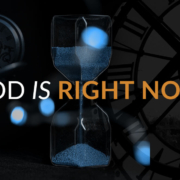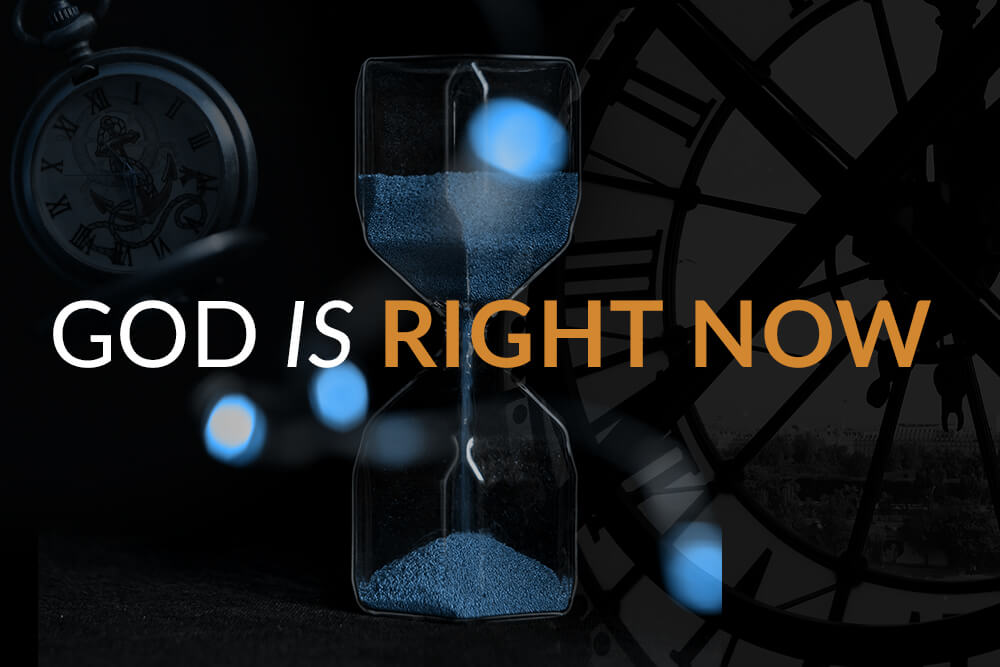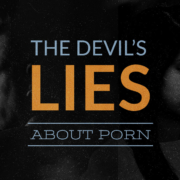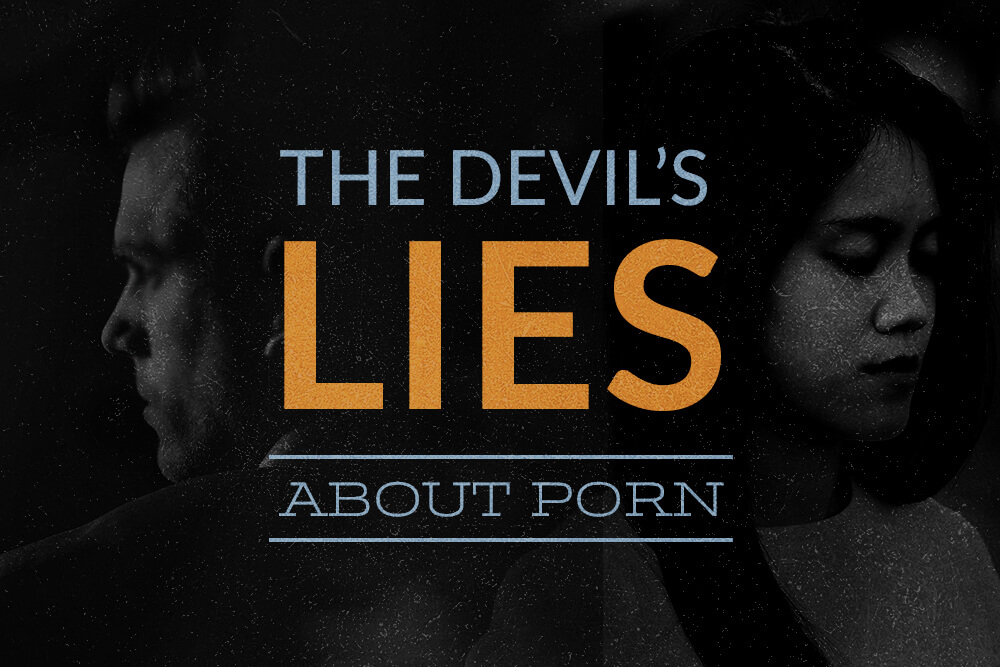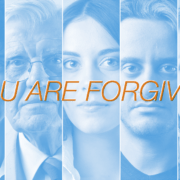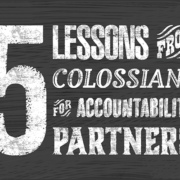“Love Conquers All” is one of those phrases that people think belongs to the Bible that doesn’t really belong to the Bible. It belongs to a classical Roman poet by the name of Virgil, taken from book X of his Eclogues. It was written nearly 100 years before any of the New Testament was recorded. Like most powerful false beliefs, there is an element of truth in it. But ultimately, no, human love cannot solve all of our problems. Nonetheless, millions of us pursue it as though it has such power.
Many are controlled by the quest for romantic love. Have you met the young woman who simply cannot stand to be single because her personal value is so wrapped up in her association to and acceptance from a man? Have you met the woman who is so bitter and jaded regarding men that she has sworn off them altogether and will take any chance that she gets to tell you how they’re “good for nothing”? In different ways, both of these women show that their lives are controlled by the power of romantic love. Have you heard of the man who is such a chicken when it comes to intimacy and so selfish when it comes to pleasure that his most desired way to interact with women is behind closed doors through pornography? Have you met the man who has no desire to lead his family but idly sits back and sheepishly makes most decisions in his life simply with the goal of not upsetting his wife? In different ways, both of these men are controlled by the power of romantic love. I intentionally chose these examples so that you could see that not only on the extreme ends of aggressive dominance or passive neediness, but virtually everywhere in between, humans are inclined to do what they do so that they can somehow fill that gaping hole inside of them that seems to be crying out for intimacy and love. As the irreverently insightful 21st century sociologist and pop diva Ke$ha has noted, many live by the motto “Your Love is My Drug.” (I think I probably just ruined the word “insightful.”)
Jacob’s Quest for Love
There is an edgy, painful Old Testament account that quite clearly shows the futility of holding up romantic love as the answer to your problems. It is found in Genesis 29. Jacob, the son of Isaac and Rebekah, has stolen the birthright of his brother Esau. Why would he do such a thing, stealing from his brother by deceiving his father? Jacob wanted a piece of his father that his father wouldn’t give him….love. Isaac had favored Esau, the older, more manly of the two sons. The Bible says that “Isaac, who had a taste for wild game, loved Esau, but Rebekah loved Jacob.” (Gen 25:28) Jacob thought that if he could only get that birthright, then maybe he could quiet the inner demons that had convinced him he was unworthy of his father’s love and therefore worthless. So he got the birthright by any means necessary. And now his older brother was furious. Fearing the vengeance of Esau, Jacob fled from his home in Beersheba to the location of his Uncle Laban in Paddan Aram.
When Jacob got to Paddan Aram, he went to the region’s local watering hole (apparently the place where desperate singles went looking for companionship even then). While at the well, Jacob, for the first time, laid his eyes on the woman that he’d fall head over heels for, Laban’s daughter Rachel. This was the woman, so he thought, that would fill the void inside of him left by the absence of his father’s love. Just look at the reaction he has at first meeting: “When Jacob saw Rachel…(he) kissed Rachel and began to weep aloud.” (Gen 29:10-11) He’s lovesick. He must have her. Jacob goes to work for Laban (Rachel’s father) as a shepherd. Laban recognizes that even though Jacob is his family, he still deserves to be paid, so he asks Jacob what his price for labor is. Jacob responds, “I’ll work for you seven years in return for your younger daughter Rachel.” (Gen 29:18) Just so we’re clear here, in ancient cultures, this type of bride-price dowry would have been fairly customary. However, this specific amount was enormous. It’s obvious that Jacob wants Rachel. He wants her badly, and Laban knows it.
Upon completion of his seven years of labor, Jacob goes to Laban and demands marriage to Rachel. But look at his language. He sounds like an addict in need of a fix, which wasn’t that far from the truth. He says, “Give me my wife. My time is completed, and I want to make love to her.” (Gen 29:21) Bible commentators will tell you that the words that Jacob speaks here are unusually coarse and carnal, but that should be obvious. Remember, he’s basically saying to Rachel’s father, “I need to have sex with your daughter right now!”
Laban agreed to make the wedding happen. They celebrated a grand feast, complete with ample adult beverages. At that time, brides were veiled until the consummation of the marriage. So, perhaps with the combination of a veil, the dim night light, and a couple too many drinks, Jacob failed to recognize that Uncle Laban had pulled the old switcheroo on him – he had substituted his older daughter Leah in the wedding ceremony for the one Jacob had loved, Rachel. And in the morning light, Jacob was just now realizing that he had spent his first night with his wife, but his wife was not Rachel.
It’s worth noting the Bible’s comparison between the two daughters of Laban. Genesis 29:17 says that “Leah had weak eyes, but Rachel had a lovely figure and was beautiful.” Scholars have debated exactly what it meant that Leah’s eyes were “weak.” Some have suggested that perhaps she had bad eyesight. But if that was the case, the text would likely say that Leah had weak eyes, but Rachel had very strong eyes. No, the contrast here is between Rachel’s tremendous beauty and Leah’s “weak eyes,” which leads us to assume that the phrase “weak eyes” is describing Leah as having an unattractive appearance. What’s abundantly apparent is that Rachel is a hottie and Leah is unfortunately a nottie. Jacob had fallen for Rachel and become obsessed with possessing her because of her great beauty.
Disappointed by Love
Understandably, Jacob is furious to find out that Laban had duped him into taking the wrong daughter as his bride. He confronted Laban about it. Laban offered up a lame excuse about how it’s not customary in his land to give away the younger daughter before the older daughter. So, Laban is to blame for being shady. However, Jacob shares the blame here as well for letting his hormones and obsession blind his good judgment. When he’d first asked Laban to marry Rachel, Laban never actually said “Yes.” He said, “It’s better that I give her to you than to some other man. Stay here with me.” (Gen 29:19) That’s it. Perhaps Jacob would have picked up on Laban’s shadiness about the situation had he not been so obsessed with making a good thing (Rachel’s beauty) the ultimate thing (an idol) that he thought could cure his inner hurt.
By the way, if you’re wondering, men still try to do this with female beauty today as well. Old men dump their wives in favor of younger women because they think such romantic love will make them young again. Young men try to sleep with as many women as possible, simply because they’re trying to use such “romance” to validate their own prowess and power. Sleazy, right? Jacob using female beauty to try to solve his problems was a little sleazy. In that sense, men today are a little sleazy as well. But the truth is that every man who thinks that he can validate himself through sex, thinks he’s going to bed with Rachel, but wakes up realizing it’s Leah. What I mean is this – many men think that sleeping with a hot chick sounds like a good idea at the time, but the next morning, the guilt, regret, shame, and the weight of long-term emotional damage to two lives sets in. In general, romantic love & unbridled passion, if it truly is your god, will not solve your problems, it will destroy your life.
I don’t mean for this analogy to sound callous to Leah. But we have to be honest about the situation. Jacob didn’t truly love her. God was sympathetic to Leah about this as well, which is why he opened her womb while he closed Rachel’s. You see, the story continues as Jacob worked another seven years for Laban to receive Rachel as his wife, creating the most awkward of marital situations – two wives competing for their husband’s affection. In fact, in the next chapter of Genesis, the two women trade “who gets to sleep with Jacob tonight” for some mandrakes – what kind of messed up life is this! (Interestingly, both women valued these mandrakes so much because in ancient cultures, mandrakes were viewed as both an aphrodisiac, which Leah thought might help Jacob become more attracted to her, and as a fertility boost, which Rachel thought might help her conceive, causing Jacob to appreciate her more). Both were absolutely desperate for his love.
Obviously crushed by Jacob’s rejection of her in favor of her sister’s beauty, Leah rejoices when she first becomes pregnant by Jacob. Look at what she says, “It is because the LORD has seen my misery. Surely my husband will love me now.” (Gen 29:32) You see, romantic love controlled her life as much as it had controlled Jacob’s. She had a void inside of her that was caused by someone who was supposed to love her (her husband) not loving her. And now her desire for children is for all the wrong reasons. Leah becomes pregnant twice more with the hope that it will force Jacob to love her. Finally, when she conceives her fourth son, Leah gets it. Leah, who has reached rock bottom in trying to make romantic love answer her life problems, has a fourth son named Judah, and she says about him, “This time I will praise the LORD.” (Gen 29:35). After all this time, Leah now discovered that only the LORD can truly fill the void for love inside of us. Romance cannot. And if we believe all the Hugh Grant movies and Celine Dion anthems that tell us it can, then romantic love has become an idol for us, and it will be a curse in our lives, not a blessing.
Romantic, physical, intimate love is a beautiful thing. When used properly, it is seen as the great blessing from God that it is. I’m not suggesting otherwise. But it’s not the greatest thing.
Truly Fulfilling Love
The only one who can truly fill the inner void left by those who didn’t love us as they should have is Jesus. And fascinatingly, in the godly sense, Jesus descended from heaven, and in the worldly sense, he descended from the womb of…..Leah. Yes, he was the scepter who would come through her son Judah (Isaiah 49:10). No one knew rejection of earthly love like he did. Physical romance was not even part of his life, because the bride that he’d be coming back for was his Church. And yet he suffered and died to pay for all of the times we’ve mistakenly thought that human love would conquer all.
For those who have lived a single and celibate life, heaven holds an intimacy for you that far surpasses any moments of pleasure from this world.
For those who have been unloved by those who should have loved you, heaven holds for you a feeling of absolute completion, satisfaction, and unity that the missed love of your father, mother, ex-husband, ex-wife, ex-boyfriend, or ex-girlfriend never could have offered you anyway.
And for all of us, in this lifetime, sometimes, by God’s grace through the relationships that God blesses us with, we catch glimpses of what love really is. In heaven, we’ll know it so well that we can’t help but praise the LORD.
Thanks to author Pastor James Hein of St. Marcus Lutheran Church in Milwaukee, WI. This article is adapted from content that originally appeared on “Crossing my mind. Mind on the cross.” pastorjameshein.wordpress.com



